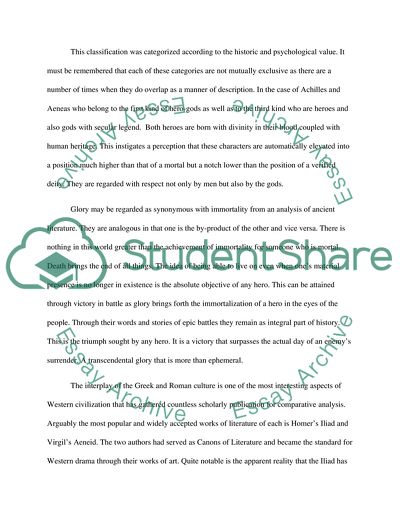Cite this document
(Seven Types of Ancient Heroes Research Paper Example | Topics and Well Written Essays - 1500 words - 1, n.d.)
Seven Types of Ancient Heroes Research Paper Example | Topics and Well Written Essays - 1500 words - 1. Retrieved from https://studentshare.org/literature/1751179-what-is-the-importance-of-heroism-and-glory-in-the-iliad-and-in-the-aeneid
Seven Types of Ancient Heroes Research Paper Example | Topics and Well Written Essays - 1500 words - 1. Retrieved from https://studentshare.org/literature/1751179-what-is-the-importance-of-heroism-and-glory-in-the-iliad-and-in-the-aeneid
(Seven Types of Ancient Heroes Research Paper Example | Topics and Well Written Essays - 1500 Words - 1)
Seven Types of Ancient Heroes Research Paper Example | Topics and Well Written Essays - 1500 Words - 1. https://studentshare.org/literature/1751179-what-is-the-importance-of-heroism-and-glory-in-the-iliad-and-in-the-aeneid.
Seven Types of Ancient Heroes Research Paper Example | Topics and Well Written Essays - 1500 Words - 1. https://studentshare.org/literature/1751179-what-is-the-importance-of-heroism-and-glory-in-the-iliad-and-in-the-aeneid.
“Seven Types of Ancient Heroes Research Paper Example | Topics and Well Written Essays - 1500 Words - 1”, n.d. https://studentshare.org/literature/1751179-what-is-the-importance-of-heroism-and-glory-in-the-iliad-and-in-the-aeneid.


